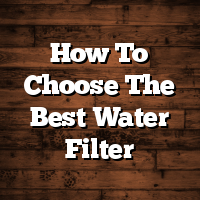People have been shifting to point of entry filtration these days. It is quite convenient as you do not have to install a filter and various points. You will get filtered water from every faucet in your home because of point of entry filtration.
What is the Point of Entry Filtration?
Point of entry filtration frameworks are placed in the main water line where water enters the household This entry point is, as a rule, is found within the garage, and the frameworks are generally set before water radiators to convey purified cold and hot water to each tap within the home. They convey the treated water to all sinks, showers, baths, dishwashers, fridges, toilets and washing machines– fundamentally covering the full house.
Benefits
Here are some of the benefits of point of entry filtration.
One Filter
Point of entry filtration is a very good investment both in regards to your health and home because it includes the filtration of the dirty water before it can reach any of the taps installed in your home. The point of entry filtration technique eliminates the requirement of any other individual filters at every tap in your house.
Protection Against Contamination
If you have an issue with your water having rust and iron the point of entry filtration will help in reducing the contaminants. Iron and rust are very harmful as they leave behind residue in your drains and toilets.
Easy Monitoring
Point of entry filtration has a very good feature of monitoring the water and controlling it from a centralized problem. This serves as a very convenient option as you can easily know what the problem is and easily replace filters if an issue arises. This solves your problem of maintaining a number of filters.
Considering Point of Filtration to Avoid Chlorination?
One of the foremost common reasons for installing point of entry filtration treatment is so prevalent is the negative discernment of centralized treatment including chlorination. In spite of the reality that the chlorination of water is exceptionally effective in slaughtering infections and is one of the most noteworthy public wellbeing propels in human history, it encompasses an exceptionally negative recognition due to the difference in taste and scent, and the concerns of its toxicity.
Capacity To treat water
Point of entry filtration offers a large capacity filtration and treats around a few thousand gallons every day. They are ordinarily bigger in size with small mountable units, varying from 20” H x 4.5D to taller unsupported mineral tanks up to 65” or more in stature. These flexible units can utilize an assortment of diverse filter media beds and cartridges to essentially expel any sort of water defilement. The greater volume and capacity of the frameworks make them very tough and maintenance-free with a few bigger units and needs replacing after each 5-7 years.
Conclusion
This is quite an effective method for purifying water but if you combine it with the Point of use filtration you will get better results and can obtain drinking water too. This framework is quite hasslefree and is the right step towards pure water.
Nephros Inc. Also Offers Following Services :
